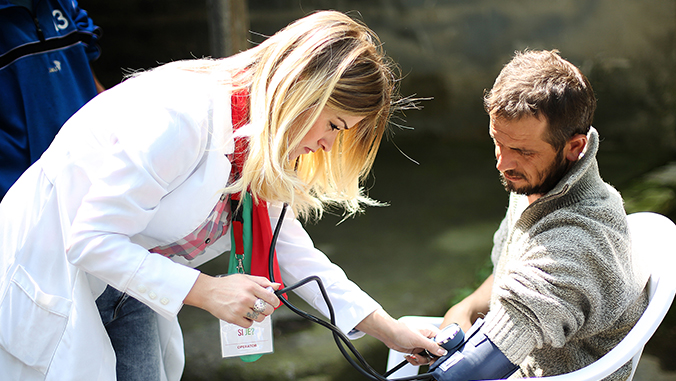
In Albanian, “Si je?” means “How are you?” Public health researchers at the University of Hawaiʻi at Mānoa asked exactly that question of an innovative new health program in Albania. Their analysis shows how one country is making progress toward a goal of preventing chronic diseases like diabetes and heart disease on a national level. Their findings hold lessons for other locations, including Hawaiʻi.

A global effort is underway to prevent chronic diseases, rather than focus on treating people once they become ill. Toward this goal, the small European country of Albania launched an innovative health program in 2015, called “Si je?” which encourages middle-age adults to go to their local community health center every year for a free check-up. The program is aimed at shifting healthcare resources toward disease prevention through personal contact with primary healthcare providers.
“Right now, there is a growing understanding worldwide that in order for a nation to be healthy, it has to have a health system that aims to prevent chronic diseases, not just treat patients once they are sick,” said Tetine Sentell, lead author of the study and an associate professor with UH Mānoa Office of Public Health Studies in the Myron B. Thompson School of Social Work. “Our new study shows that the Si Je? program is working—it is building a culture of prevention and health in Albania.”
Study results and challenges
Researchers analyzed the screening database created from this program and conducted interviews with 15 health center directors. Results showed that about 270,000 people got a checkup during the program’s first year, which is more than a quarter of the number of people who were eligible. The program also successfully strengthened links between communities and health centers and had higher-than-expected participation rates in rural communities. As in Hawaiʻi, family members were important motivators to getting check-ups and screening.
But challenges remain. The researchers noted a need for greater participation among some groups. For example, men had lower participation than women.
Building a culture of prevention
The study found that Albania, like Hawaiʻi, seeks to build a culture of prevention that will reduce health inequities by increasing patient-centered relationships with clinicians and the healthcare system and by diversifying the primary healthcare workforce to meet community needs.
“Lessons can be learned by studying country-wide transformative programs such as Si Je? that extend far beyond Albania,” said Catherine M. Pirkle, assistant professor of public health and a co-author of the study.
“For example, the activities to reinforce community-clinical linkages resemble similar efforts in Hawaiʻi, which may help us here as we seek to strengthen the relationships and bridges between our primary care centers with the communities they serve,” Pirkle said.
The study was published online November 30 in Prevention Science and is a collaborative outcome from Sentell’s Fulbright Specialist program stay in Tirana, Albania in January 2017.
—By Theresa Kreif

